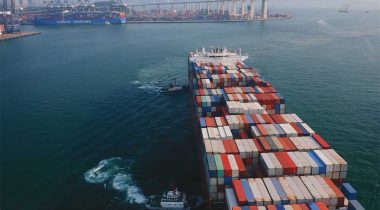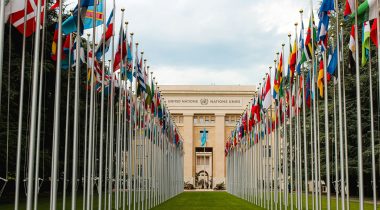
Mark Bou Mansour ■ The Financial Secrecy Index reached a record-breaking number of people this year

Image credit: © 2011 Jens Schott Knudsen
Launched two weeks ago, the 2020 edition of our Financial Secrecy Index has broken every record we track on the index’s reach and media impact. First published in 2009, the global coverage of this year’s edition of the index reflects a growing urgency shared by people around the world to expose and reign in rampant tax abuse by the ultra-rich and powerful.
The Financial Secrecy Index ranks each country based on how intensely the country’s legal and financial system allows wealthy individuals and criminals to hide and launder money extracted from around the world. A higher rank on the index does not necessarily mean a jurisdiction is more secretive, but rather that the jurisdiction plays a bigger role globally in enabling secretive banking, anonymous shell company ownership, anonymous real estate ownership or other forms of financial secrecy, which in turn enable money laundering, tax evasion and huge offshore concentrations of untaxed wealth. A highly secretive jurisdiction that provides little to no financial services to non-residents, like Samoa (ranked 86th), will rank below a moderately secretive jurisdiction that is a major world player, like Japan (ranked 7th). The aim is not to penalise jurisdictions with greater scale, but simply to recognise that their secrecy poses greater risks – and so it is more important that they behave responsibly.
The 2020 edition of the index saw Switzerland reduce its ranking to the third biggest enabler of financial secrecy in the world, marking the first time the country did not rank worst on the index since 2011. Despite escalating its contribution to global financial secrecy since the publication of the 2018 edition of the index, the US remained the second biggest enabler of financial secrecy in the world after Cayman overtook both the US and Switzerland to the top of the 2020 index. This marks the first time Cayman ranked first on the Financial Secrecy Index.
These changes on the ranking told three major international stories that were covered widely around the world: a British territory topped the index for the first time on the same day the EU blacklisted the territory; the US continued to escalate its financial secrecy despite ambitions announced by Senator Lindsey Graham to improve the US’s ranking on the Financial Secrecy Index; Switzerland managed to lose its position as the world’s greatest enabler of financial secrecy amid a global trend of governments curbing financial secrecy. The index also told many regional and country-specific stories on which we worked with our partners and allies around the world to shine a spotlight on.
As of writing, the Financial Secrecy Index 2020 has been featured in over 700 articles and broadcast pieces. This coverage has spanned across 80 countries and included several high profile publications like the Financial Times, the New York Times, the Daily Maverick, the Times of India, Agence Ecofin, Al Jazeera, The Guardian, ABC Australia, Il Sole 24 Ore, Der Spiegel, Clarin and El Pais.
The launch of the index also saw an outpour of support and commentary from renowned economists, organisations and tax advocates. Gabriel Zucman, professor of economics at the University of California at Berkeley and author of The Triumph of Injustice: How the Rich Dodge Taxes and How to Make Them Pay, described the index as “a valuable tool to spot where bad regulations emerge around the world and thus be able to propose strategies for a more transparent world.” Transparency International published a comparison of the Financial Secrecy Index and Corruption Perception Index, illustrating how the two indices build a fuller picture. OpenOwnership discussed the global progress on beneficial ownership revealed by the index.
Altogether, we saw eight op-eds supporting the index published in Latin America, four in Europe, four in Africa and two in Asia. Among these were several from Independent Commission for the Reform of International Corporate Taxation commissioners, including Eva Joly former member of the European Parliament and vice chair of the Commission of Inquiry on Money Laundering, Tax Evasion and Fraud; Léonce Ndikumana, Professor of economics and Director of the African Development Policy Program at the Political Economy Research Institute at the University of Massachusetts; Jayati Ghosh, professor of economics at Jawaharlal Nehru University; Wayne Swan, former treasurer and deputy prime minister of Australia; and Ricardo Martner, economist and former Chief of the Fiscal Affairs Unit of the United Nations Economic Commission for Latin America and the Caribbean.
Discussions of the Financial Secrecy Index took place beyond just screens and broadsheets. The UK’s performance on the index was raised in the House of Commons by UK Shadow Chancellor John McDonnell, and speakers from across the parliament in a debate on tax avoidance and evasion. The index was presented in the US Senate by the FACT Coalition, with speakers from Transparency International, the National District Attorneys Association, the Fraternal Order of Police, Global Financial Integrity and Jubilee USA Network.
All in all, the Financial Secrecy Index 2020 has so far reached a viewership of over 2 billion, blasting a bright, searing light through the fog of financial secrecy. Countries that peddle in financial secrecy can no longer do so in secret and the record-breaking reach of the Financial Secrecy Index shows that people around the world will no longer stomach financial secrecy.
Related articles

The elephant in the room of business & human rights
The elephant in the room of business & human rights
UN submission: Tax justice and the financing of children’s right to education
14 July 2025

How the UN Model Tax Treaty shapes the UN Tax Convention behind the scenes
The 2025 update of the UN Model Tax Convention
9 July 2025
One-page policy briefs: ABC policy reforms and human rights in the UN tax convention

Bad Medicine: A Clear Prescription = tax transparency
Tax justice pays dividends – fair corporate taxation grows jobs, shrinks inequality

Reclaiming tax sovereignty to transform global climate finance
Reclaiming tax sovereignty to transform global climate finance
16 June 2025

